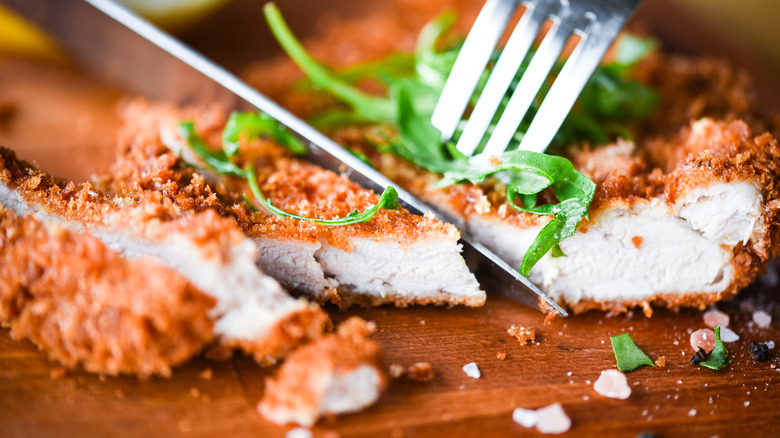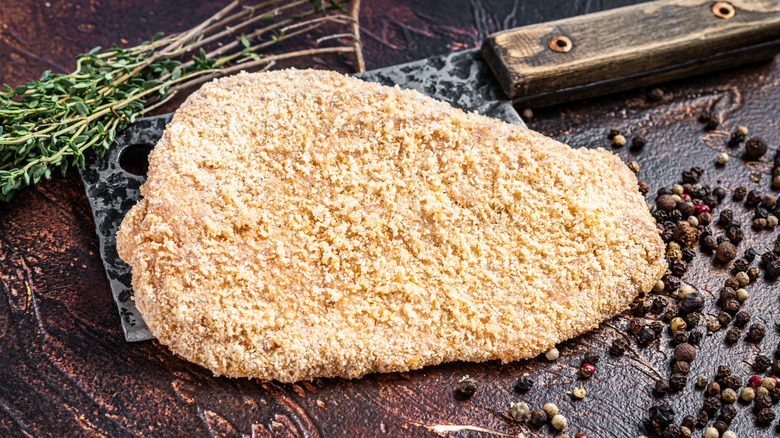Why You Should Chill Breaded Chicken Before Cooking
Chicken parmesan, chicken katsu, schnitzels — we are no strangers to crispy, breaded poultry. The satisfying crunch of a panko exterior scratches an itch that a battered dish cannot. Yet, as with many things that require a bit more plates and elbow grease, breaded chicken can be quite a challenge to make. More often than not, you got your hands covered in a pasty mixture of flour, eggs, panko, and chicken. And to top it off, even a perfectly breaded chicken can go awry once it hits the fryer. Whether you are shallow-frying a katsu or deep-frying it, you have to pay attention to temperature, amount of dry ingredients, and cooking time, per Reader's Digest.
All of these factors in mind, there is something you must absolutely do for anything that's been breaded. For something as smooth and slick as a chicken breast, Insider says you have to chill the fillet after you've breaded it. Although this tip suggests that a chicken parmesan will take much longer than you reckoned, it's really just a form of meal prepping.
But why must anything breaded be chilled?
It sets the coating
The difference between battered fried foods and breaded ones is that the latter is made up of thousands of breadcrumbs. If you fry your fillet immediately after you cover it in panko, you'll end up with a partially naked chicken breast in scattered debris. When you think about the layers that go into breading, this makes perfect sense. Following breading protocol, you first coat the chicken in a bit of flour to rid it of excess moisture and prime it for the other ingredients. Then, you dip it in egg wash, which acts as an adhesive for the final coat of breadcrumbs (via Jessica Gavin). However, as sticky a mixture of egg and flour can get, it still isn't strong enough to hold onto the dry, coarse surface of every breadcrumb.
To let all of these ingredients become one, you must let the chicken chill in the refrigerator, according to Insider. The egg and flour become tackier while they sit, thus gluing the breadcrumbs to the chicken. Waiting an extra 15 minutes (or 30, according to Southern Living) for your breading to solidify can ensure that your chicken parmesan comes out in one piece. This rule applies to any dish that's been breaded, like mozzarella sticks, which might even require some time in the freezer, per Fifteen Spatulas.
All that said, breading is an art that requires a bit of practice and lots of patience.

